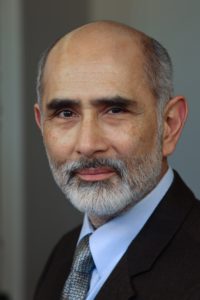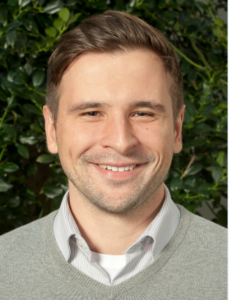Keynotes

Distinguished Professor Ricardo F. Muñoz
Distinguished Professor of Clinical Psychology, Palo Alto University
Founding Director, Institute for International Internet Interventions for Health (i4Health)
Ricardo F. Muñoz, Ph.D., is Distinguished Professor of Clinical Psychology at Palo Alto University, Professor Emeritus in the University of California, San Francisco (UCSF) Department of Psychiatry at Zuckerberg San Francisco General Hospital, Adjunct Clinical Professor at Stanford University’s Department of Psychiatry and Behavioral Sciences, and a member of the Affiliate Faculty at the University of California, Berkeley, Department of Psychology. Dr. Muñoz is originally from Perú. He immigrated to San Francisco at age ten. His work is generally conducted in Spanish and English. His areas of specialty include the prevention and treatment of major depression, smoking cessation interventions, and the development, evaluation, and global dissemination of self-help online interventions. He is an advocate for the creation of “digital apothecaries,” that is, online repositories of Massive Open Online Interventions (MOOIs, inspired by MOOCs) that would provide evidence-based self-help interventions to anyone in the world. He and his trainees and colleagues have developed several manuals focused on the prevention and treatment of major depression. The manuals are available for downloading at no charge from Palo Alto University’s i4Health website in several languages. Dr. Muñoz has published over one-hundred articles and chapters, and authored or coauthored six books, including Controlling Your Drinking (with William R. Miller); Control Your Depression (with Peter Lewinsohn, Antonette Zeiss, and MaryAnn Youngren), Depression Prevention: Research Directions; and The Prevention of Depression: Research and Practice (with Yu-Wen Ying). He is a Fellow of the American Psychological Association, the Association for Psychological Science, and was recently elected Fellow of the American Association for the Advancement of Science “”for distinguished contributions towards the prevention of major depression and the development of Internet interventions to improve mental health worldwide.”

Dr Lance O’Sullivan
Dr Lance O’Sullivan is a leading medical innovator pursing the goal of increasing access to quality health care using emerging digital technologies. Concepts such as cloud, mobility, artificial intelligence, digital humans, internet of things and blockchain are not typically taught in the health sector and yet Lance believes the time has come for them to be. “The tools of my trade that will allow the greatest impact on the health of our country have changed”. Lance believes there is a big enough clinical knowledge base to have exponential improvements in the health and well-being of all if we can create more digital bridges separating the patient from the care.
Lance has been recognised nationally for being an disruptor and champion for ensuring that health care is delivered to the most important of our society-children particularly those with high health and social needs. Lance lives by the famous quote of Sir Fedrick Douglas that reflects the value of our children. He created New Zealand’s first digital health program (iMOKO™) for children across the country that delivers health services to communities of children in minutes and hours rather that hours and days.
Lance is a passionate son of New Zealand that wants to see our country lead the way in the delivery of innovative models of care that provides MORE care to MORE people of HIGHER quality for LESS cost resulting in a FAIRER society.
Professor Sally Merry
Cure Kids Duke Family Chair in Child and Adolescent Mental Health
Head of the Department of Psychological Medicine, University of Auckland
Professor Merry is a consultant child and adolescent psychiatrist (FRANZCP), who has worked in a range of clinical services spanning Africa, Europe and New Zealand. She is committed to reducing population rates of mental distress and has carried out a number of large clinical trials to find better ways of delivering psychological therapies for mental health problems. In 2014, she was named the New Zealand’s NEXT Woman of the Year in the category of Health and Science. Professor Merry led the team that developed one of the world’s first computerised therapies for young people with depression. The programme, called SPARX, is an avatar-based fantasy game and has earned Sally the World Summit Award (in the category of e-Health and Environment) in 2011 and the NetExplo award in 2013. SPARX was shown to be effective in randomized controlled trials, the first of which was published and featured on the cover of the British Medical Journal. SPARX became available as a national e-therapy service in New Zealand in 2014 (funded by the Prime Minister’s Youth Mental Health Project) and was recently released as an app www.sparx.org.nz (available only in New Zealand). Versions of SPARX and projects building on this are underway around the globe.
Professor Merry has also conducted several systematic reviews and meta-analyses in the child and adolescent mental health field, including Cochrane Reviews. Most recently she has been funded to develop and test a programme of digital therapies for young people as part of New Zealand’s National Science Challenge, a Better Start – E Tipu E Rea. She has also received substantial philanthropic funding through Cure Kids to develop and test digital therapies to support parents of younger children. Professor Merry has combined her career in medicine with raising three children by working part-time. She’s pioneered job-sharing in specialist psychiatry training, a practice which is now well-established. She believes strongly in the importance of families and is now delighted to be a grandmother.
 Dr Rita Orji
Dr Rita Orji
Assistant Professor, Faculty of Computer Science, Dalhousie University, Canada
Dr. Rita Orji is an Asst. Professor of Computer Science at Dalhousie University, Canada. Her research areas include Human-Computer Interaction, Persuasive Technologies, and Games for Change. She is particularly interested in investigating user-centered approaches to designing technological interventions to motivate people to improve a wide range health and wellness behaviours, including sexual and other health risk behaviours, healthy eating, physical activity, and smoking cessations. Dr. Orji has a strong interest in mhealth and digital health optimization in African nations. She is well-known for her work in the area of Personalizing Persuasive Technologies to make them appropriate for the target audience. She has published over 70 peer-reviewed papers in reputable venues. Her work has won several prestigious awards and funding, including Canadian Government Natural Sciences and Engineering Research Council of Canada (NSERC) Discovery Grant, Banting Fellowship, NSERC Postdoctoral Fellowship, Vanier Scholarship, the Federal Government of Nigeria and the Government of Turkey funding, and best paper awards. Recently, she was recognized as one of the Top 150 Canadian Women in Science, Technology, Engineering, and Mathematics (STEM) and also won a digital leadership award as a Women Leader in Digital Economy for her work in advancing technology both in Canada and in her native country of Nigeria. Dr. Orji has been interviewed and featured in major media, including Canadian Broadcasting Corporation (CBC) and Nigerian Television Authority (NTA), StarPhoenix on account of her work. She gave an invited talk to the Canadian Parliament. Dr. Orji is also passionate about inspiring the next generation of female tech. leaders; promoting research excellence; and equity, diversity, and inclusion in STEM.
Pre-conference workshops
Distinguished Professor Linda M Collins
Director, The Methodology Center
Distinguished Professor, Department of Human Development and Family Studies
Professor, Department of Statistics
Linda M. Collins, Ph.D., is Distinguished Professor of Human Development & Family Studies at the Pennsylvania State University, United States. She is also Director of The Methodology Center, an interdisciplinary research center devoted to the advancement and dissemination of quantitative methods for applications in the behavioral sciences. Dr. Collins’s research interests include the multiphase optimization strategy (MOST), an engineering-inspired methodological framework for optimizing and evaluating behavioral, biobehavioral, and biomedical interventions. The objective of MOST is to improve intervention effectiveness, efficiency, economy, and scalability. Dr. Collins is currently collaborating on research applying MOST to develop optimized behavioral interventions in the areas of smoking cessation, weight loss, prevention of excessive drinking and risky sex in college students, and HIV services. Her research has been funded by without interruption by the United States National Institutes of Health for more than 30 years.
Dr. Collins’s publications have appeared in a wide range of outlets, including methodological journals such as Psychological Methods, substance use journals such as Nicotine and Tobacco Research, behavioral journals such as Annals of Behavioral Medicine, and engineering journals such as IEEE Transactions on Control Systems Technology. She is a Fellow of the American Psychological Association, the Association for Psychological Science, the Society of Behavioral Medicine, and the Society for Prevention Research. She is a past president of the Society of Multivariate Experimental Psychology and the Society for Prevention Research. She is on the Fulbright Specialists Roster and recently completed a Fulbright project in Ireland. Dr. Collins has delivered more than 100 invited presentations and workshops on MOST around the world.
 Peter Tinschert
Peter Tinschert
Ph.D. candidate and doctoral researcher at the CSS Health Lab Center for Digital Health Interventions, ETH Zurich & University of St. Gallen
Peter obtained his master’s degree in industrial and organizational psychology at the University of Mannheim with distinction. In his dissertation at the CSS Health Lab (a cooperation of the University St. Gallen, ETH Zurich and CSS Insurance Switzerland) he is investigating the potential of digital medicine for the management of chronic diseases. More specifically, he focuses on digital biomarkers for asthma which can be monitored passively by means of the smartphone.

Jan-Niklas
PhD student at the CSS Health Lab (a cooperation of the University St. Gallen, ETH Zurich and CSS Insurance Switzerland).
Jan-Niklas is a PhD student at the CSS Health Lab (a cooperation of the University St. Gallen, ETH Zurich and CSS Insurance Switzerland). His research investigates whether and how mobile technology can help to change health-related behaviors. In his current study, he evaluates different components of a smartphone app that promotes physical activity. Before starting his PhD, Jan-Niklas completed a masters’ degree in Psychology at the University of Heidelberg, Germany.

Dr. Heleen Riper
Dr. Heleen Riper is Professor of eMental-Health at the Vrije Universiteit Amsterdam (Department Clinical, Developmental and Neuro Psychology, section Clinical Psychology, The Netherlands
Dr. Heleen Riper is Professor of eMental-Health at the Vrije Universiteit Amsterdam (Department Clinical, Developmental and Neuro Psychology, section Clinical Psychology, The Netherlands) and works as well at GGZ inGeest a large mental health service organization in the Amsterdam region (Research Department), Amsterdam, the Netherlands. She is honorary professor Telepsychiatry at the University of Southern Denmark (Faculty of Health Sciences, Odense). See www.heleenriper.nl
Over the past 20 years her research focus has been on the development, evaluation and implementation of innovative eMental-Health interventions for common mental disorders from prevention to treatment. The scope of her current research activities includes the use of mobile health, and combined online and face to face (‘blended’) treatments for depression, anxiety and substance use related disorders. New methodological challenges include the development and evaluation of mobile ecological momentary assessments and interventions (EMA/EMI), patient-centered design and research and predictive modeling. She has opted for an international perspective and collaboration throughout her academic career and acted as Principal Investigator of over 15 large scale European Union projects and reviewer for Research Funding Organizations globally. She was Principal Investigator/coordinator of the European Comparative Effectiveness study on Internet Interventions for Depression (E-COMPARED, www.e-compared.eu). She has published over 170 international peer reviewed papers and book chapters within the eMental-health domain. In 2013 Heleen Riper (co) founded the Journal of Internet Interventions of which she is associated editor (published by Elsevier) and in 2014 she became President of the International Society for Research on Internet Interventions (ISRII) for which she acts now as Past-President. She is chair of the DIFFER EU-Consortium (Digitial Framework For E-health Research) which develops, evaluate and implement the digital MoodBuster 2.0 platform for mental disorders.

Agnieszka Freda
Agnieszka Freda, Master of Science in Biotechnology. Experienced specialist with over a decade of experience in R&D and Business Development. Currently Senior Publisher at Elsevier managing 11 key titles in Psychiatry and Mental Health sector.

Burkhardt Funk
Professor for information systems, Leuphana University
Burkhardt Funk is a professor for information systems at Leuphana University. His research interests encompass building statistical models and decision support systems, based on methods from machine learning and data mining, in a variety of application domains such as e-Mental-Health and e-Commerce. He has been and is involved in various third party funded researches projects. Burkhardt has been one of the driving forces behind the Master program in Data Science at Leuphana and he was a visiting scholar at Stanford University and the University of Virginia at Charlottesville.
Besides his academic career he has a wealth of practical experience. As a senior consultant with McKinsey & Company he was engaged in Technology and e-Commerce projects. To bridge the gap between research and entrepreneurial activities is an important driver of his work. Hence, he has been involved in several start-ups as a co-founder and advisory board member.

Mark Hoogendoorn
Associate Professor of Artificial Intelligence at the Department of Computer Science, Vrije Universiteit Amsterdam
Mark Hoogendoorn is an Associate Professor of Artificial Intelligence at the Department of Computer Science of the Vrije Universiteit Amsterdam. He obtained his PhD degree at the same university in 2007. After completing his PhD he has been a Postdoctoral Researcher at the University of Minnesota, Department of Computer Science and Engineering after which he started as an Assistant Professor at the Vrije Universiteit. In 2015 he was a Visiting Scientist at the Computer Science and Artificial Intelligence lab (CSAIL) of the Massachusetts Institute for Technology. In his research, he focuses on predictive modeling and personalization using AI techniques, applied mainly in the domain of health care including the mental health domain. He is currently a board member of ISRII and chairs the Special Interest Group on Data Sharing and Standard.


